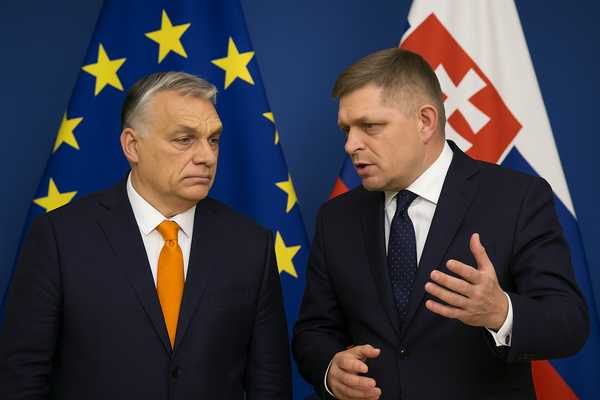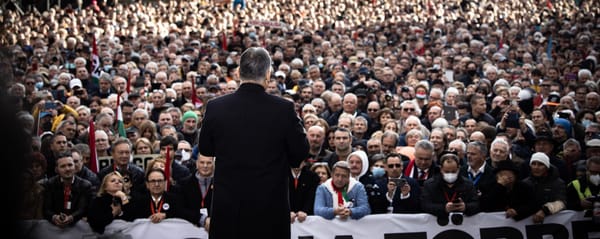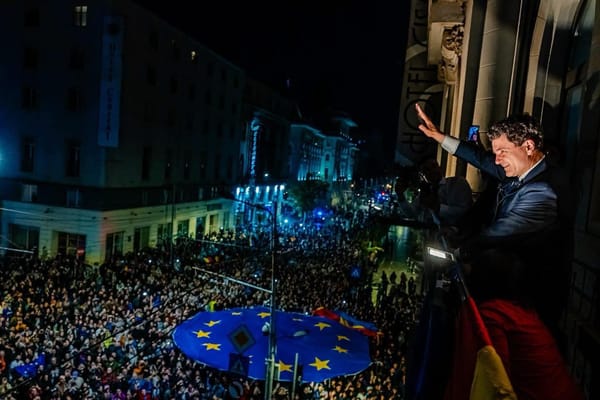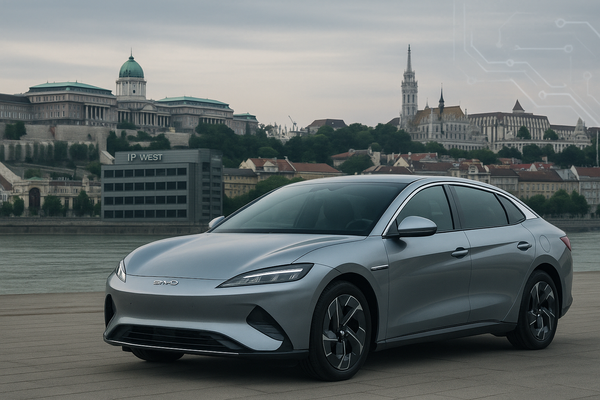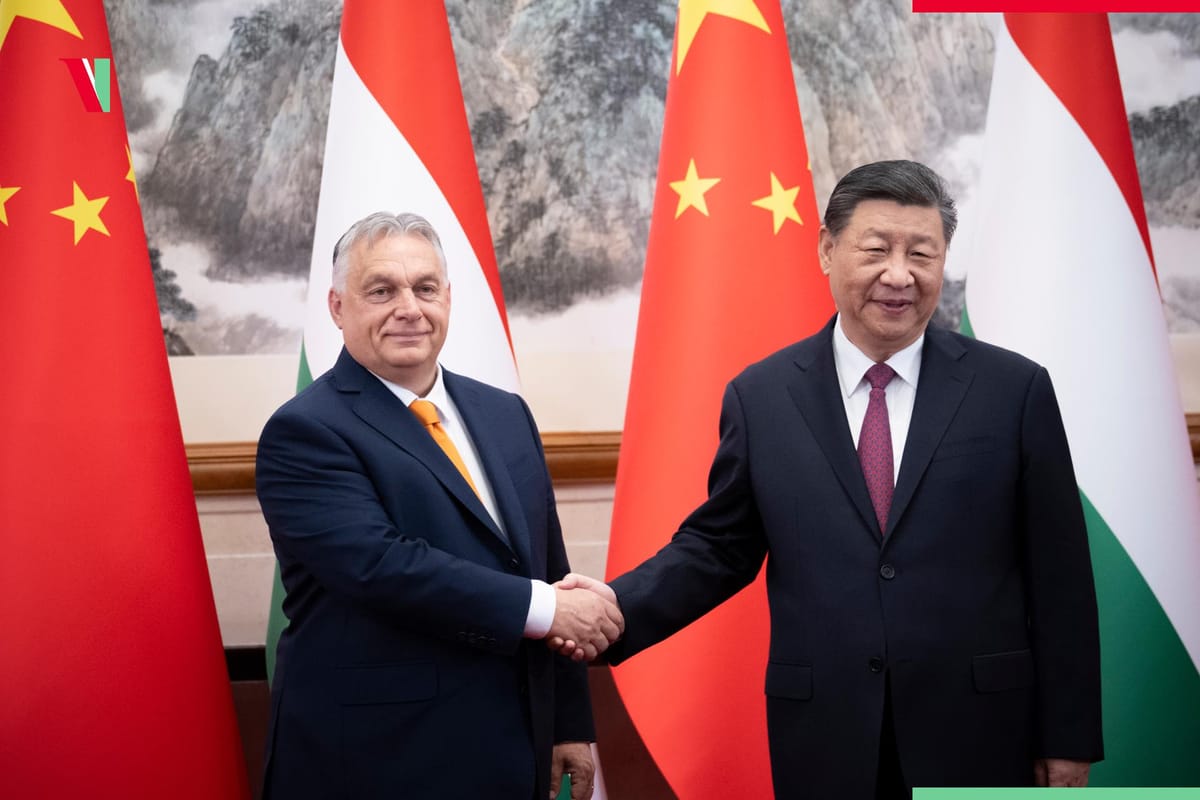
Orban makes surprise visits to Ukraine, Russia, China on 'mission for peace'
Hungarian Prime Minister Viktor Orban was accused of mission creep by the international community after he opened his first week hosting the six-month EU rotating presidency with unannounced trips to Kyiv, Moscow and Beijing.
Orban’s final destination after a busy week was Washington DC, for the long-planned NATO summit from 9-11 July. His mission, however, has not been endorsed by other European leaders, and some EU member states are mulling options to rein in Orban’s behaviour, which does not represent the bloc as whole, Euractiv learned.
Orban praises Chinese peace plan
Proclaiming to be on a “peace mission”, Orban said world peace “is important for Hungarians”, in Beijing, where he met Chinese President Xi Jinping on Monday.
At a joint press conference with Xi, Orban said “we greatly value China’s advocacy of peace as opposed to war in the world… When it comes to war in Hungary’s neighbourhood, we also greatly appreciate your peace initiative. China means stability for the world amid stormy global politics,” Orban added.
Orban hosted the Chinese leader in Hungary two months ago, when China upgraded its ties with Hungary to an “all-weather, comprehensive strategic partnership,” a high foreign relations designation that only applies to four countries. Orban described China’s own six-point peace plan, which it issued with Brazil in May, as “constructive and important”.
Beijing is officially neutral regarding the conflict, though it holds joint military drills with Russia. A ceasefire will come from “positive energy rather than negative energy”, Xi said.
The Chinese leader also called on world powers to help Russia and Ukraine resume direct dialogue, state broadcaster CCTV reported. “China is a key power in creating the conditions for peace in the Russia-Ukraine war,” Orban tweeted.
Orban visited Ukraine, but remained silent on Moscow plan
Orban’s self-styled peace mission began in Ukraine last Monday. At a joint press conference with the Ukrainian President Volodymyr Zelenskyy, Orban revealed that they had agreed to the day’s talks in Brussels the previous week.
“Peace is important not only for Ukraine but for the whole of Europe,” Orban said. “The ways of international diplomacy are slow and complicated … I put it to the president that we should consider whether the order may be reversed by speeding up peace talks with a quick ceasefire,” Orban added.
“A ceasefire tied to a deadline, which could offer the opportunity to accelerate peace talks: I have assessed the options for that scenario,” Orban said, adding that he would prepare a report for the European Council “that could be a baseline for the necessary European decisions”.
Putin welcomes ‘frank and useful’ talks with Orban
On Friday in Moscow Orban said Russia and Ukraine remain “far apart” in their views, adding that “many steps are needed to end the war, but we took the first step to restore dialogue.” Russian President Vladimir Putin sais they had enjoyed a “frank and useful” conversation.
Orban has repeatedly delayed and frustrated EU efforts to assist Ukraine and impose sanctions on Moscow over the fullscale land invasion it launched against Ukraine in February 2022, which the international community considers a threat to the security of Central and Eastern Europe (CEE). Hungary did not officially inform EU and NATO allies about Orban’s plans to meet with Putin on Friday, CEE outlet VSquare learned.
Polish Prime Minister Donald Tusk wrote on Facebook on Sunday “is there anyone who feels safer after the exchange of views on the ‘post-war European security architecture’ between Victor Orban and Vladimir Putin? History does not repeat, but it often rhymes,” Tusk added.
European Commission President Ursula von der Leyen tweeted on Saturday “Hungarian Prime Minister Orban is visiting Moscow: Appeasement will not stop Putin.Only unity and determination will pave the path to a comprehensive, just and lasting peace in Ukraine.”
“The EU rotating presidency has no mandate to engage with Russia on behalf of the EU,” European Council President Charles Michel tweeted.
Ukraine’s foreign ministry said on Friday that “the decision to make this trip was made by the Hungarian side without approval or coordination with Ukraine. We restate that the principle of ‘no agreements on Ukraine without Ukraine’ remains inviolable for our country and call on all states to strictly adhere to it.” The plan outlined by Zelenskyy “remains the only realistic way to restore a just peace”, it added.
Hungary gov’t attacks ‘pro-war propaganda’ parties, outlets
Meanwhile the Orban government will implement an “anti-war action plan”, Hungarian Prime Minister’s Office head Gergely Gulyas told a government press briefing in Budapest.
Under the plan, Gulyas said, “pro-war propaganda”, parties and media outlets will be obliged “to make their resources transparent” under new measures. “Hungary reserves the right to send funding arriving from abroad for war propaganda purposes back to the sender,” he said.
Gulyas said after his visits to Ukraine, Russia and China, Orban “briefed EU officials accurately and thoroughly on the trip, as well as on his views on how the EU could promote peace talks”.
While Orban travelled to Moscow in his capacity as Hungarian premier and the current holder of the rotating presidency of the council of the EU, “he did not conduct talks in the name of the EU”, he said.
Gulyas described the first week of the Hungarian EU presidency as “successful”, adding that Orban will “continue his peace mission. Attacks in Brussels on the peace mission” could ease, he said, adding that this would largely depend on the outcome of the US election in November. “Next stop: Washington”, Orban wrote on social media, after he left China Monday morning.


